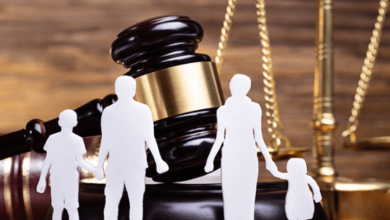What Does A Criminal Defense Attorney Do During Trials?

A criminal lawyer can be a crucial ally in the fight against criminal charges. A criminal defense attorney’s role is vital during court proceedings, even if much of their work occurs before the trials. Attorneys for criminal defense are adept at navigating the judicial system. From developing strategies to advocating for clients, they are experts. AZ Defenders has comprehensive services tailored to suit the individual needs of clients seeking expert legal representation.
Learn what a defense attorney does and why this is so crucial to the outcome of a case.
1. Preliminary Trial Preparation & Strategy Implementation
A criminal lawyer meticulously prepares for the trial by analyzing evidence, talking to witnesses, and studying the prosecution case. During the trial, this planning becomes an active strategy. They are aware of the rules of testimony, the laws applicable to the case, and the subtleties involved in courtroom etiquette.
Lawyers can use this information to help them develop a defense strategy aligned with how the trial will progress. The foundation laid before trial, whether presenting evidence, cross-examining witnesses, or objecting to incorrect prosecution tactics, is critical.
2. Opening Statements
The trial’s opening statements are where the defense attorney sets out the tone for his or her case. This statement does not constitute a direct attack but is an opportunity for defense attorneys to give their opinion on the case and introduce important evidence. It also allows them to highlight inconsistencies in the prosecution’s narrative.
A skilled defense attorney such as those from AZ Defenses understands how to craft a compelling first statement that engages a jury and establishes reasonable doubt.
3. Cross-Examination Of Witnesses
Cross-examination of witnesses for the prosecution can be one of the most critical aspects of the trial. During this phase, the defense attorney attempts to expose contradictions and question witnesses’ credibility and motives.
A lawyer can, for instance, challenge a witness who claims to have witnessed the defendant’s presence at the crime scene. This could be due to poor lighting or distance.
Cross-examinations are both an art and a science, requiring quick thinking, sharp observation, and a profound understanding of the human condition.
4. Presenting The Defence Case
After the prosecution ends, the defense can present its case. This may involve calling witnesses, introducing the evidence, or presenting other theories supporting a defendant’s innocence. To achieve this, the goal is to instill reasonable doubt into the jurors’ minds.
Defense lawyers must decide strategically whether to call their client as a witness and what evidence they want to present. This decision is made after carefully considering how the jurors might view the defendant and their testimony during cross-examination.
5. Objections And Legal Motions
Throughout a trial, defense lawyers are on guard to ensure that the prosecution adheres to legal standards. If the prosecution introduces evidence that violates the rules of proof or the defendant’s constitutional rights, then the defense attorney will object.
A lawyer can object to hearsay and ask for it to be excluded, such as if the prosecutor wants to introduce it. Defense attorneys can also ask for a mistrial or file motions that dismiss charges, suppress the evidence, and/or request a mistrial in certain circumstances.
6. Closing Arguments
Both sides give closing arguments. The defense attorney can summarize their case here, draw attention to inconsistencies and contradictions in the prosecution’s evidence, and remind the jury that the jury must acquit only if the prosecution proves guilt.
Closing arguments must be a mix of logic, emotion, and passion. A skilled attorney such as those of AZ defenders will weave a compelling narrative to appeal to jurors. They can also reinforce the legal standards that jurors are required to uphold.
7. Jury Instructions And Deliberations
After the closing arguments are over, the judge instructs the jury on the laws that pertain to the case. This includes how they should go about their deliberations. A defense attorney can ensure the instructions are correct and accurate by ensuring they are fair. They can suggest instructions that will help their client.
Once the deliberations have begun, the defense attorney can answer any questions the jury raises. After a jury verdict, they will prepare the next steps. This could be celebrating a guilty verdict or preparing for an appellate.
Conclusion
During a case, a criminal lawyer has several roles: he is the strategist, the advocate, and even the protector. Their actions have a great impact on the outcome. From creating persuasive arguments to ensuring the process is fair, they play a key role in determining the outcome. A criminal defense attorney with experience, such as the ones at AZ Defenders, will help you protect your rights and ensure a bright future.







